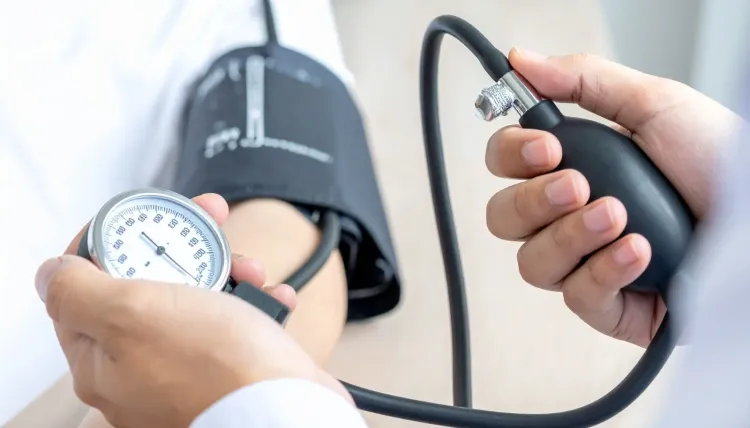Could a New Online Tool Change Hypertension Treatment?

Synopsis
Key Takeaways
- Innovative online tool for hypertension management.
- Based on data from nearly 500 clinical trials.
- Helps doctors customize treatment plans.
- Addresses a global health challenge impacting 1.3 billion people.
- Classifies treatments by intensity for effective management.
New Delhi, Aug 29 (NationPress) A global consortium of researchers from India, Australia, the US, and the UK has introduced an innovative online tool that has the potential to revolutionize the management of hypertension. This tool enables healthcare providers to tailor treatment plans for each patient based on the extent to which they need to reduce their blood pressure.
The 'blood pressure treatment efficacy calculator' utilizes data derived from nearly 500 randomized clinical trials involving over 100,000 individuals. It equips healthcare professionals with insights into how various medications are anticipated to impact blood pressure levels.
“The significance of managing high blood pressure effectively cannot be understated. To achieve optimal control, we need a comprehensive understanding of the effectiveness of antihypertensive medications at different doses and combinations. Without clarity on our objectives and the means to achieve them, meeting our targets remains elusive. While guidelines specify target blood pressure, our online tool aids in pinpointing the most suitable antihypertensive medications to attain that target,” explained Dr. Mohammad Abdul Salam from The George Institute for Global Health, Hyderabad.
Typically, a single antihypertensive drug—still the most prevalent starting point for treatment—only lowers systolic blood pressure by about 8-9 mmHg, whereas most patients require reductions between 15-30 mmHg to achieve ideal levels.
Nelson Wang, a cardiologist and Research Fellow at the Institute, commented that although traditional practices involve directly measuring blood pressure for each patient and adjusting treatments accordingly, BP readings can be inconsistent, making them unreliable.
The newly developed tool, as detailed in research published in The Lancet, addresses this issue by calculating the average treatment effect observed across hundreds of trials.
Additionally, it classifies treatments as low, moderate, or high intensity based on their effectiveness in lowering blood pressure—an approach already common in cholesterol management.
High blood pressure represents one of the most significant health challenges globally, impacting approximately 1.3 billion individuals and resulting in around ten million fatalities annually.
Often referred to as a silent killer due to its lack of symptoms, it may remain undetected until it culminates in severe health events such as heart attacks, strokes, or kidney disease. Alarmingly, fewer than one in five individuals with hypertension have their condition under control.










